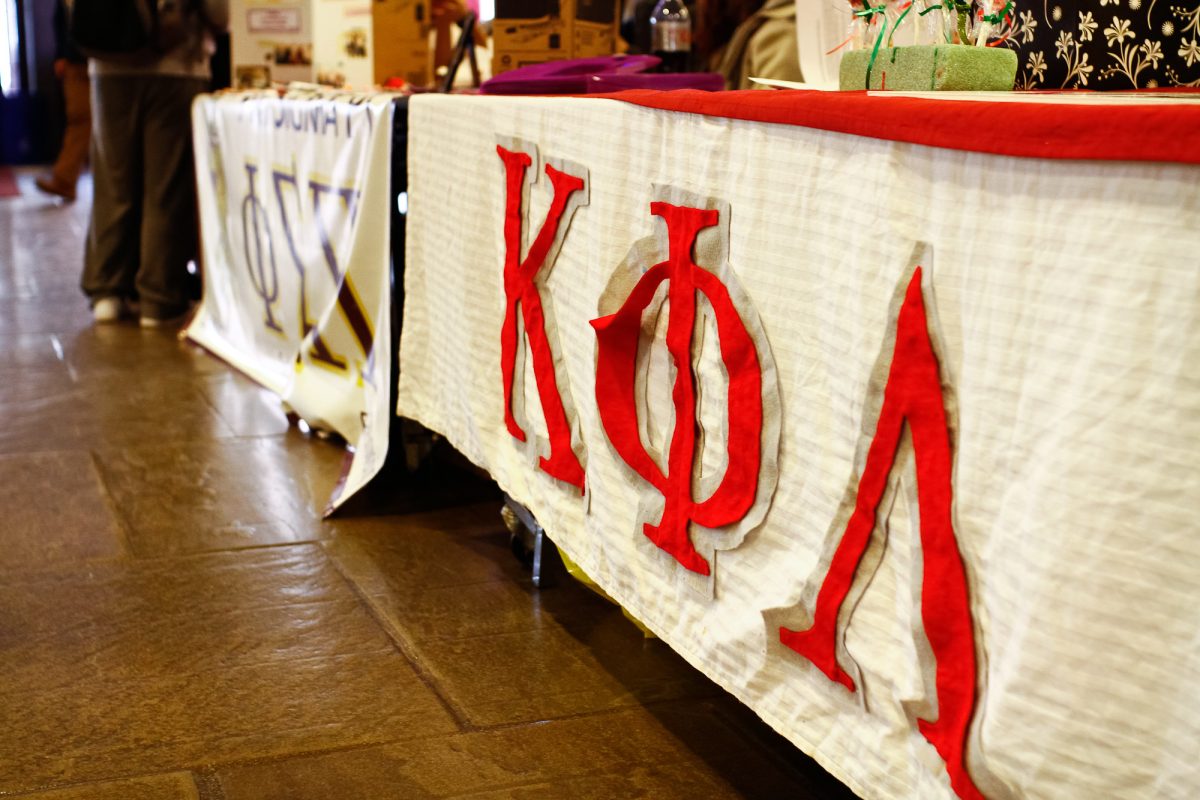In 2020, many lost their social lives due to the pandemic, which made an already difficult environment as a freshman in college that much harder. This was the case for Sarah Park, former president of Kappa Phi Lambda (KPL), who was an incoming freshman to the University of Massachusetts at the time.
Kappa Phi Lambda (KPL), established in 1995, is an Asian-interest sorority at UMass that serves the large Asian community on campus.
“When I heard about Kappa Phi Lambda, I was interested because it was an Asian interest group,” Park said. “I just wanted someone that knows my culture very well.”
Park has always been interested in a position of leadership. Though she had constant thoughts of self-criticisms, Park stated, “At the time I wasn’t sure if I was ready but my passion and the support I had from sisters really pushed me to become the president.” Park gained self-confidence, advocacy skills and learned more about herself as a person.
“Looking back on my presidency through KPL, it encouraged advocacy skills and self-reflection through various initiatives and sisterhood events.”
Some of KPL’s philanthropy initiatives work with international organizing for concerns that a member would want to address. “We do kind of bill statements, or we have a discussion on our own or even nationally, we have meetings, we have options where we can bring these concerns up. And sometimes [KPL] national board makes a group statement that we kind of release to show our support in a way publicly,” Park said.
KPL supports advocacy organizations, such as Stop It Now! and CARE, two human rights groups. Stop It Now! works to prevent the sexual abuse of children by mobilizing adults, families and communities to take actions that protect children before they are harmed, while CARE is a national philanthropy organization. KPL chapters across the country raise money and bring awareness towards global poverty, specifically regarding women and children.
“We’ve been hosting, we have our own personal goal of raising a certain number of awareness about these topics that are often taboo. We do that by doing fundraisers here at campus, or through guest speakers,” Park said.
Despite the philanthropic work of many sororities, Greek life in other campuses across America have experienced a downturn in recent years. “I’ve always thought that the cultural Greek life is kind of dying,” Park said. “On campus, or even nationally, it is disappearing in subtle ways. I feel like the number of interests is definitely getting lower. And I don’t, I don’t really know, what was the cause of it.”
Caroline Tran, senior and vice president internal of KPL, offered an explanation. “I think because of the stigma that it has regarding sexual assault, violence, parties, hazing, etc.,” Tran stated. “As someone who’s in Greek life, I feel like it has progressed compared to the past and many of us attend training and workshops about said topics to learn and gain a better understanding.”
Tran stated, “It sucks that this stigma is generalized and affects all Greek organizations, since we all work differently and hold different values.”
Being involved in an Asian-interest sorority throughout college has given Tran a place of support and leadership. “It has been such a great experience for me to connect with others with similar goals and backgrounds, especially since we are in a predominantly white institution,” she said.
Tran explained KPL has many events hoping to spread cultural awareness towards the Asian American community, “as well as community service initiatives that I wish more people would focus on than just parties.”
Cultural sorority groups like KPL help its members build networking skills and a professional mindset. “I learned about philanthropies and the services that they provide, which I don’t think is very exemplified [outside of KPL],” Park said; she added that she was excited to feel a part of a community.
When Park first joined, her involvement at recruitment events was extremely positive. “We just had really nice conversations and I really wanted to get to know them better. And after that, I just really wanted to be a part of their community.”
Park said she grew into who she currently is through her involvement in KPL. As she began having conversations with individual members, more networking opportunities arose. “Being a nursing major, I feel like we don’t really get the chance to converse with other majors,” said Park. “The organization helped me differentiate professional and personal relationships.”
Aggie Li, president of KPL, agrees. “We try to build confidence in one another – not competence. In terms of the founders of [KPL], I think this is what they were hoping to achieve – building a community on campus of people who support one another, help to raise awareness on campus, and who give back to their community.”
Through the pandemic, the crisis of connection and to where Park is now, the legacy the founders of KPL wanted as an Asian interest sorority is clear.
“Empowered women empower women,” Park said. “I’m looking forward to seeing my sisters grow both individually or collectively. That is what matters. That is what this is about.”
Diamond Smith can be reached at [email protected]



















